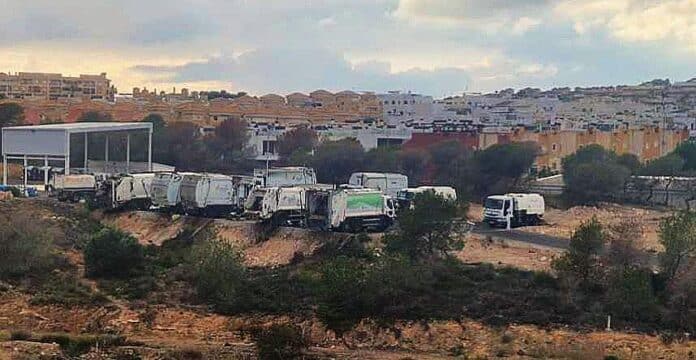Spanish
Dutch
French
German
Norwegian Bokmål
Polish
Swedish
The Councillor for Street Cleaning and RSU, Rocío Ortuño, has announced the final approval of Orihuela’s Local Waste Plan (PLR). With no objections registered during the public review period, the plan has now been published in the City Council’s Electronic Headquarters.
This comprehensive six-year strategy aims to improve waste collection and management while reducing environmental impact and enhancing service quality for residents.
A Modernised Approach to Waste Management
The plan aligns with the Valencia Region’s Integrated Waste Plan (PIR-CVA), which requires municipalities with populations over 50,000 to adopt innovative systems such as door-to-door collection for bio-waste and light packaging.
Alternatively, equivalent systems that incentivise waste separation—such as the “pay-as-you-throw” model—must be implemented. This approach rewards residents for reducing mixed waste, encouraging recycling and minimizing landfill use.
By addressing Orihuela’s current shortcomings, the PLR supports regional strategies to combat climate change and promote a circular economy. It aims to reduce waste treatment costs while increasing recycling rates and fostering sustainability.
Diagnosis and Recycling Potential
A comprehensive analysis of Orihuela’s waste management system revealed substantial untapped recycling potential. For instance:
Light Packaging: Orihuela currently recycles about 501 tonnes per year but could recover up to 5,200 tonnes—a 91% increase.
Paper and Cardboard: Current recycling stands at 437 tonnes annually, though potential recovery exceeds 8,000 tonnes, a 94% improvement.
Bio-Waste: The municipality manages around 8,300 tonnes per year, but with improved systems, it could process up to 23,400 tonnes.
These changes would significantly reduce landfill dependency and treatment costs, lowering rates for residents.
Key Measures in the Plan
The PLR outlines 23 initiatives designed to overhaul Orihuela’s waste management system. Highlights include:
Video Surveillance: Monitoring illegal dumping points with penalties to deter violations.
Ecoparks: Construction of two fixed facilities—one on the coast and another in the town centre—to handle special waste.
Environmental Education: Hiring educators to raise awareness about waste separation and recycling.
Infrastructure Improvements: Adding and replacing bins while enhancing cleaning and maintenance around collection points.
Market and Event Waste Collection: Implementing separate waste streams for bio-waste from large producers such as hotels and restaurants.
Composting Programs: Promoting composting in schools and expanding door-to-door collection in pilot areas.
Fifth Container: Introducing a dedicated container for bio-waste across Orihuela to improve source separation.
Pay-As-You-Throw: Implementing a system that lowers fees for residents who generate less mixed waste.
Investment and Workforce Expansion
To support these initiatives, the City Council will invest €20 million over the next six years. This funding will go toward purchasing new collection vehicles, enhancing machinery, and increasing the workforce by 50 employees.
Citizen Participation and Incentives
Central to the plan’s success is active public participation. “Improving selective collection at the source is key to reducing costs, but it requires cooperation from residents,” stated Ortuño. The Department of Street Cleaning and Solid Urban Waste is drafting a Service Ordinance to formalize these changes and introduce bonuses for compliant residents.
A Sustainable Future
Orihuela’s Local Waste Plan represents a transformative step toward sustainability. With clear goals, robust investment, and innovative systems, it aims to align the municipality with regional and national waste management standards while fostering environmental responsibility among its citizens.
Spanish
Dutch
French
German
Norwegian Bokmål
Polish
Swedish












